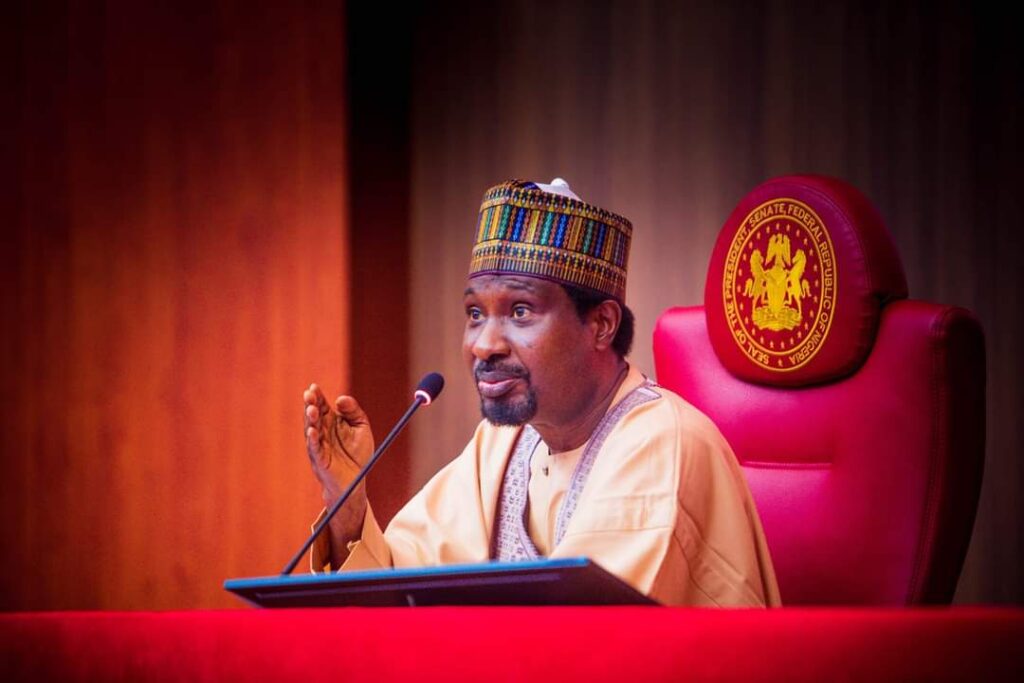The Senate’s passage of the controversial tax reform bill past its second reading has sparked widespread discontent, particularly regarding Senator Barau Jibrin’s role in the process. Many view his actions as a betrayal, raising concerns about his commitment to the interests of Northern Nigeria and the masses at large. The events at the Senate plenary on Wednesday and Thursday laid bare the deep divisions between senators prioritizing public welfare and those seemingly driven by personal ambitions.
President Bola Ahmed Tinubu, a known master strategist, has a reputation for using political surrogates to achieve his goals. In this case, Senator Barau played the role of Tinubu’s stooge, pushing the contentious tax reform bill forward despite vocal opposition from Senator Ali Ndume, who stood firm in defense of the people’s interests. Barau’s actions raise the specter of manipulation, where loyalty to political benefactors outweighs allegiance to the electorate.
Senator Ali Ndume’s lone battle on behalf of the masses highlighted the glaring contrast between the two senators. Ndume epitomized principled leadership, rejecting policies that would exacerbate the plight of Nigerians. Meanwhile, Barau aligned himself with an agenda many view as anti-people. The question looms: Is Barau willing to sacrifice the North’s interests for personal political gain?
Barau’s actions bring to mind the infamous third-term agenda during President Olusegun Obasanjo’s administration. Then, influential Northern senators like Nasiru Ibrahim Mantu, Omar Abubakar Hambagda, and Jonathan Zwingina were instrumental in pushing the agenda, only to face public disgrace when the ploy failed. Barau risks treading the same path, where short-term gains lead to long-term repercussions. History teaches us that betraying one’s people for political expediency often ends in disgrace and irrelevance.
Speculation abounds that Barau’s support for the tax reform bill is tied to his ambitions to run for governor in Kano State. By aligning with Tinubu’s administration, Barau appears to be securing favor and resources for his future campaign. However, such political maneuvering comes at a high cost. The tax reform bill, widely regarded as an anti-masses policy, threatens to deepen the financial burdens on Nigerians already struggling with economic hardships. Barau’s willingness to prioritize his ambitions over the welfare of his constituents is a troubling indication of his political ethos.
This episode underscores a recurring theme in Nigerian politics: the North often sabotages its own interests. Barau’s actions are a stark reminder of this reality. By championing policies that undermine the economic well-being of the region, he has joined the ranks of Northern leaders who prioritize personal gain over collective progress. His betrayal is likened to selling the North for a “pot of porridge”—a short-sighted decision that will have lasting consequences for his people.
If it were Senate President Godswill Akpabio leading the charge for this tax reform bill, the narrative would likely have been different. Akpabio’s Southern roots and the optics of his leadership would have been scrutinized in ways Barau seems to have escaped. This double standard reveals an uncomfortable truth: the North’s political elite often fail to hold their own accountable, paving the way for continued exploitation and marginalization.
Senator Barau Jibrin’s actions in advancing the tax reform bill highlight a disturbing trend in Nigerian politics, where personal ambition supersedes public service. His role as a willing tool for Tinubu’s agenda casts doubt on his loyalty to his constituents and raises questions about his suitability for higher office. As Northern Nigeria grapples with poverty, insecurity, and underdevelopment, leaders like Barau must be held accountable for their actions. The people deserve representatives who will stand firm against policies that harm the masses, not those who sell out their region for political expediency.
Garba Ubale Kankarofi wrote this piece from Kano – Nigeria

